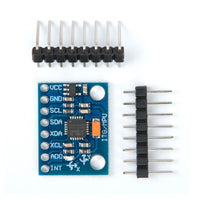Client Overview
Client: Individual robotics student
Industry: Healthcare / Educational Robotics
Problem: Stream and filter sound in real time from one Raspberry Pi to another using open-source tools.
The Challenge
The client had limited technical experience and no prior knowledge of setting up audio pipelines or filtering sound. Their goal was to stream audio in real time and only relay specific sounds using machine learning — all on low-cost hardware like the Raspberry Pi.
Our Approach
We started by walking the client through the basics of Icecast and Darkice for live streaming. Once the stream was stable, we integrated a real-time sound classification model using YAMNet to filter the incoming audio before streaming it to the listener device.
Technologies, Tools, and Platforms Used
- Raspberry Pi
- Python
- Icecast
- Darkice
- YAMNet (TensorFlow Lite)
These tools were chosen for being open source, lightweight, and capable of running on constrained hardware like the Raspberry Pi. YAMNet allowed us to classify and filter audio without building a custom model.
The Solution
- Configured Icecast and Darkice to stream audio from the Pi to a browser-accessible endpoint
- Integrated YAMNet to classify incoming audio frames and filter based on label confidence
- Modified the streaming pipeline so only audio matching specific sound classes (e.g., crying, alarms) would be relayed
- Documented the full setup, including OS configuration and boot-time automation
- Built the system so it runs automatically on startup without requiring manual steps
The Outcome
The result was a functioning, real-time audio pipeline that could filter sound locally and stream it remotely with under 1 second of delay. The student was able to demonstrate the system and now has a working foundation to build more advanced audio pipelines.
Client Feedback
The client was very happy with the walkthrough and end result. The system worked out-of-the-box with the provided documentation.
Impact
The entire system was built using free tools and low-cost hardware. It achieved real-time sound filtering with no external services, and the client can now confidently expand it for more advanced applications.



